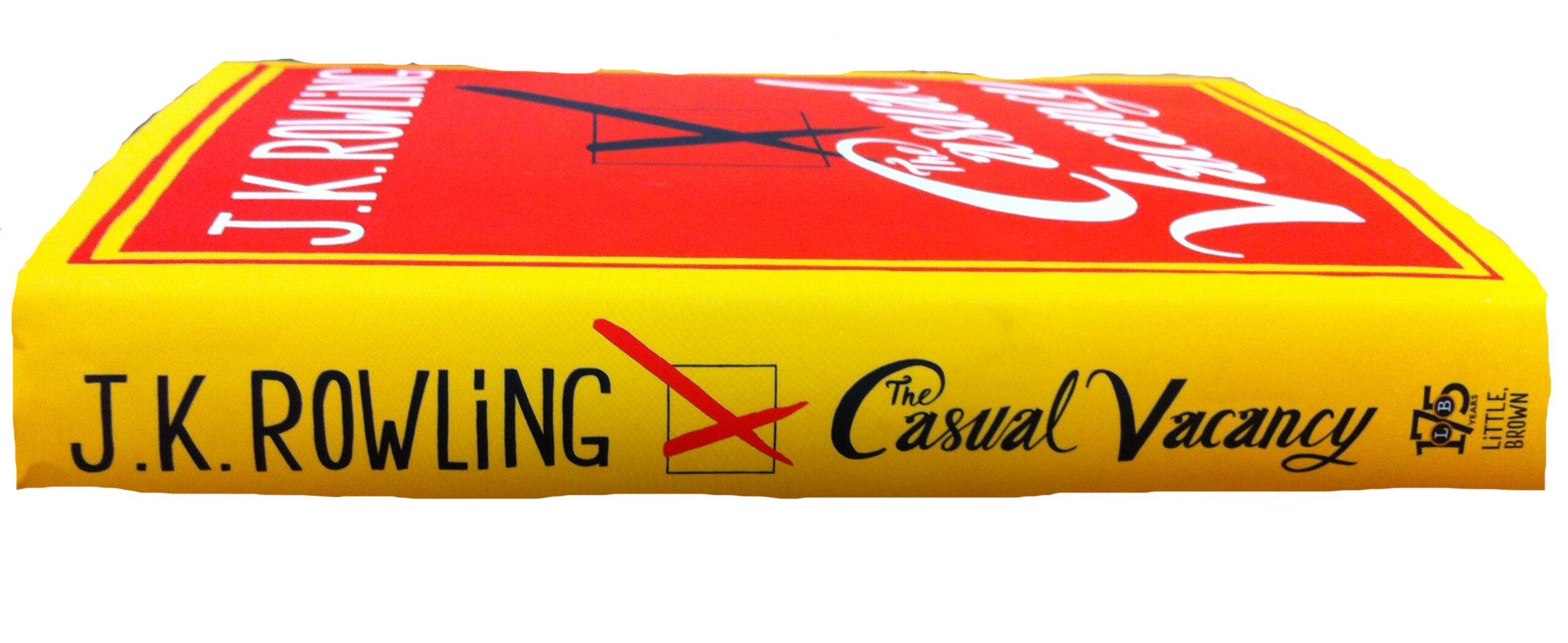Rowling’s new book doesn’t charm as much as her Harry Potter series
But were these mystical books a fluke, a series of one hit wonders? That’s what I was left thinking while reading J.K. Rowling’s latest book and first book aimed toward an adult audience, The Casual Vacancy.
So what went wrong? What was in the Potter series that made them so addicting? And why was that element missing in this new book? Unfortunately, the list of problems goes on and on and on.
Before reading this story, I admit to reading some of the reviews, and I admit to having been in denial of what they all said.
The New York Times called Rowling’s writing “depressingly clichéd.”
The Guardian described The Casual Vacancy as being “[a] solid, traditional and determinedly unadventurous English novel.”
And as The New York Daily News put it, “the magic simply isn’t there.”
I scoffed as I read those reviews initially. Clearly all of these reviewers just wanted to be as mean as possible in an attempt to discredit Rowling’s success with the Potter series. But as I read I realized a sad truth; I agree with everything they said.
The story is set in the small English town of Pagford, where the delightful friendship and all powerful familial love that made Harry Potter so magical is tragically absent.
It’s spouse against spouse, (some abuse, some infidelity), child against parent, parent against child. The children act out with drug usage, underage drinking, casual sex and the use of certain four-letter words every other line.
In fact, there may not have been one real happy moment throughout the entire 503 page novel. As one character in the book put it, “things denied, things untold, things hidden and disguised” were the main currency of the town, and accordingly a huge theme of the story.
This book is an adult book with a capital A, as in it should come with a parental advisory sticker.
It’s not a mythical story, like Harry Potter. Written for the parents, it’s a completely new kind of writing that Rowling simply does not have a magic touch with.
When Rowling was writing about broomsticks, dragons and giants, her writing style was not examined as much as it could have been. Her ability to immerse us into the lives and character lines of the Potter leads was awe-inspiring.
But when none of the characters in a book draw you in like that, as was the case with many characters in The Casual Vacancy, the story falls onto the authors writing style.
While Rowling’s writing certainly surpasses that of a lot of authors struggling to make it big, she never has been (and never will) be called a poet. One might go as far as to say that in The Casual Vacancy, she was a bit… dull.
The basic plot line of The Casual Vacancy is the small town mentioned earlier, Pragford’s, reaction to the death of councilman Barry Fairbrother.
Fairbrother’s death opens up a seat in the town council, a casual vacancy, which for many of the town’s people is akin to a seat at the legendary round table.
As the different candidates run for the chair, we see into their lives, their children’s lives and their neighbor’s lives. There is no one main character; instead there is layer on layer of town people all entwined with each other in various small town scandals.
The biggest problem I had with this book is that even though there were close to 30 or so characters, when I finished the book, and while I was reading it, I didn’t like any of them.
They were whiny and selfish, conniving and rude. Every. Single. Last. One. Of. Them.
Throughout this book, a small town saga (to put it kindly), the pace of the story is slow, agonizingly slow you could say.
In the last 50 pages, a sudden twist ends the story and wraps up, sort of, all of the story lines. Perhaps Rowling herself was tired of it all!
The ending is supposed to reach you at an emotional level, maybe make you cry, but while in the last Harry Potter book I was sobbing throughout the whole thing, this ending left my eyes dry. I simply didn’t like any of the characters enough to care.
My final conclusion in regard to The Casual Vacancy is that Rowling should stick to children’s fantasy, something that she is amazing at, rather than try this new style of writing that makes you want to turn your wand on the book and yell out, “Avada Kedavra!”

